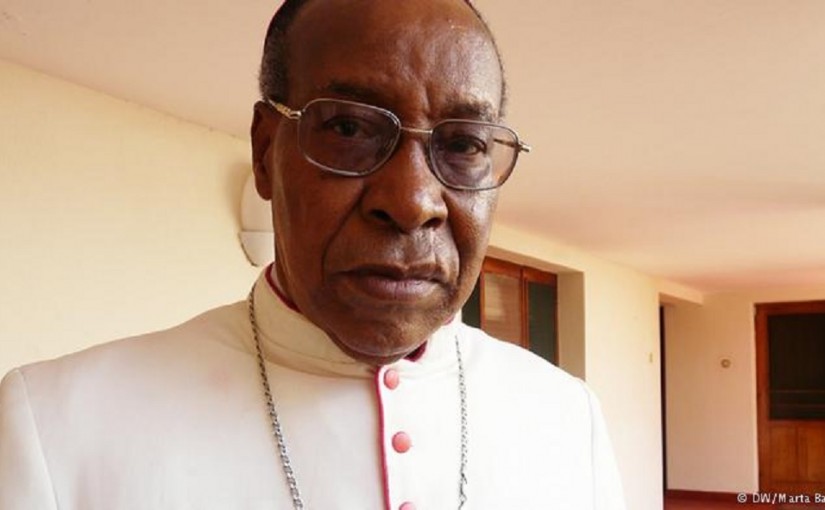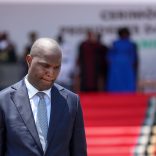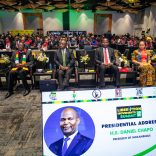Mozambique: Former torture victim appointed presidential adviser; new Secretary of State for ...
Rome Accords are still the leading light to peace in Mozambique

DW (File) / Dom Jaime Gonçalves, Archbishop Emeritus of Beira, Mozambique
The archbishop emeritus of Beira, Jaime Gonçalves, mediator of the agreement brought war to an in Mozambique in 1992, argues that the Rome peace accords are still the solution to the conflict in the country and should be revisited by the church.
“The document of the General Peace Agreement remains the most relevant and is still the light pointing to the solution for conflicts in Mozambique,” the Mozambican mediator said in an interview with Lusa on the understanding reached on 4 October 1992 in Rome between the government and Renamo (Mozambique National Resistance).
More than two decades after the historic agreement, which marked the end of 16 years of civil war in Mozambique, the country still lives under the threat of conflict between the same protagonists and Jaime Gonçalves believes that the Catholic church cannot ignore the fact.
“New conflict situations have emerged, and people are asking, where is the Catholic Church?” said the retired archbishop of Beira, adding that every day he could see retired Anglican bishop Dinis Sengulane playing a central role in the mediation of the crisis between the Government and Renamo but not any elements of his confession.
The Mozambican people expect a new dialogue but they also ask: “Where are those who have made reconciliation ?”
“That is why we say the Catholic church must renew its commitment to reconcile the Mozambican people,” Gonçalves says, while cautioning that these processes are by their nature slow.
The opposition Renamo does not recognize the results of the October 2014 general elections and threatens to take control of six provinces of the centre and north of the country by force. Renamo has requested the mediation of South African President Jacob Zuma and the Catholic church.
For Gonçalves, however, the roots of the worsening political violence in Mozambique began before the 2014 elections.
After the Comprehensive Peace Agreement, the United Nations advised that there should be only one army, made up of men from both sides of the conflict, and that Renamo could keep an armed security force to protect its leaders until the first elections.
That security problem, according to Gonçalves, “remains to this day”, arguing that Armando Guebuza’s election to the Mozambican presidency in 2004 led to discrimination against Renamo men.
Guebuza, one of the chief Frelimo negotiators in Rome, “never accepted dialogue” and, with his rise to power, says the archbishop, “the Renamo men who had been integrated by the United Nations to unify the army were all kicked out”, and the armed opposition security guard was never demobilised.
In this scenario, according to the Rome mediator, Renamo became a movement of “descamisados” (shirtless men). Dom Jaime says that Guebuza never accepted a policy that he describes as “a clever one and a good compromise”, and so eventually the opposition “began to ask. ‘What kind of a joke is this?'”.
According to the Mozambican clergyman, the severe clashes in 2013 in Maringué in the north of Sofala province were caused by men who should be in the defence and security forces “but were removed from them”, a landmark in the resumption of political violence in the country.
“You cannot understand the difficulty of achieving dialogue without understanding Maringué first” he said.
For the former mediator, recent events make it clear that “the Comprehensive Peace Agreement is not being put into practice by Frelimo” and the incidents involving Afonso Dhlakama demonstrate that a hard line prevails in the ruling party alongside the goal of eliminating the opposition leader.
“For me it was a terrible humiliation to see the President [Filipe Nyusi], the nation’s highest magistrate, going to Angola to learn how they killed Savimbi,” added the author of “The Peace of Mozambicans”.












Leave a Reply
Be the First to Comment!
You must be logged in to post a comment.
You must be logged in to post a comment.